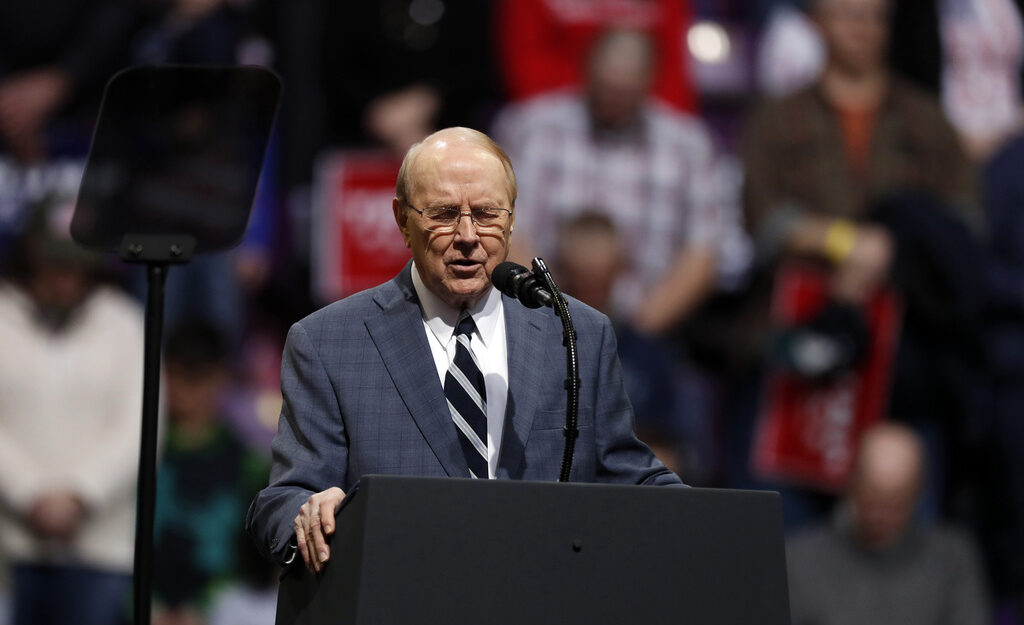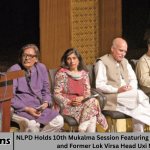The evangelical world is mourning the passing of James Dobson, a towering figure whose influence on American Christianity, family values, and conservative politics spanned more than half a century. Dobson, who died at the age of 89, was not only a psychologist and author but also one of the most recognized voices in evangelical broadcasting. Through his radio program Focus on the Family, Dobson reached millions of listeners worldwide and became a central figure in shaping the intersection of faith, family, and politics in the United States.
- Early Life and Education
- The Birth of Focus on the Family
- Bestselling Author and Cultural Influencer
- Political Activism and the Religious Right
- Influence on Evangelical Broadcasting
- Controversies and Criticism
- Legacy of Focus on the Family and Beyond
- His legacy can be measured in several ways:
- Tributes from Religious and Political Leaders
- Statistics on Dobson’s Reach
- FAQs
- Conclusion
His death marks the end of an era for American evangelicals, many of whom grew up listening to his advice on parenting, marriage, and Christian living. To others, however, his legacy is complicated, tied to controversial political stances and debates over social issues that continue to define the culture wars in America.
This article explores Dobson’s life, influence, achievements, controversies, and lasting impact on both religious and political landscapes in the United States and beyond.
Early Life and Education
James Clayton Dobson Jr. was born on April 21, 1936, in Shreveport, Louisiana, into a deeply religious family with strong ties to the Church of the Nazarene. His father was a traveling evangelist, and his upbringing was steeped in Christian values. This background heavily influenced Dobson’s lifelong dedication to merging psychology with biblical teachings.
Dobson studied psychology at Pasadena College (now Point Loma Nazarene University) before pursuing a doctorate in child development at the University of Southern California (USC). His academic training provided the foundation for what would later become his hallmark: blending scientific research with conservative Christian views on family and morality.
The Birth of Focus on the Family
In 1977, Dobson founded Focus on the Family, an organization dedicated to strengthening traditional family structures through radio broadcasts, publications, and counseling resources. The radio program quickly became one of the most influential Christian media platforms, syndicated on more than 1,000 stations and reaching millions of households worldwide.
At its height, the program was estimated to attract an audience of more than 200 million listeners across 160 countries. Dobson’s calm, authoritative voice and practical advice on marriage and parenting resonated deeply with families searching for guidance amid cultural changes of the late 20th century.
Focus on the Family grew into a major institution, employing hundreds of staff members, producing magazines, books, and films, and operating a sprawling headquarters in Colorado Springs.
Bestselling Author and Cultural Influencer
Dobson was also a prolific author. His book Dare to Discipline, published in 1970, became a defining work for Christian parents, advocating for firm but loving discipline of children. Other popular works included The Strong-Willed Child, Love Must Be Tough, and Bringing Up Boys.
These books sold in the millions and were translated into multiple languages, giving Dobson a truly global reach. His writing combined psychological insights with biblical teachings, offering a roadmap for families navigating challenges in raising children, maintaining marriages, and living according to Christian principles.
Political Activism and the Religious Right
While Dobson initially focused on family and parenting, he soon became one of the most prominent evangelical voices in American politics. By the 1980s and 1990s, he was a central figure in the Religious Right, a movement that sought to mobilize conservative Christians into the political sphere.
Dobson was unapologetic in his defense of traditional marriage, opposition to abortion, and criticism of LGBTQ+ rights. He regularly urged Christians to vote for leaders who aligned with biblical principles and was influential in mobilizing evangelical support for Republican candidates.
During the George W. Bush administration, Dobson’s role as an advisor and political influencer grew. Politicians courted his approval, knowing that his endorsement could sway millions of evangelical voters. His influence helped shape debates over education, religious freedom, and social policy.
Influence on Evangelical Broadcasting
Dobson’s radio program and media ventures reshaped Christian broadcasting. Focus on the Family was not just a radio show—it became a cultural force, producing films, dramas, and even animated series like Adventures in Odyssey, which became beloved among Christian families worldwide.
Through media, Dobson created a shared cultural experience for evangelicals, offering an alternative to mainstream entertainment and reinforcing values centered on faith, family, and morality.
Controversies and Criticism
Dobson’s career was not without controversy. While admired by millions, he also faced sharp criticism for his political positions and views on discipline, sexuality, and gender roles.
Corporal Punishment: Dobson’s advocacy of spanking as a disciplinary tool sparked debates among child psychologists and parents. Critics accused him of endorsing outdated and harmful methods of parenting.
LGBTQ+ Issues: Dobson was one of the most outspoken critics of LGBTQ+ rights, arguing that same-sex marriage and homosexuality were threats to the traditional family. His positions drew condemnation from advocacy groups and progressive Christians.
Political Influence: Critics argued that Dobson blurred the line between religion and politics, turning the pulpit into a political stage and polarizing American evangelicalism.
Despite these criticisms, Dobson remained steadfast in his convictions, often saying he answered to God, not public opinion.
Legacy of Focus on the Family and Beyond
Dobson stepped down as president of Focus on the Family in 2003 and later launched another radio ministry called Family Talk in 2010. Even in his later years, he continued to broadcast, write, and speak, maintaining his role as a guiding figure for conservative Christians.
His legacy can be measured in several ways:
Media Reach: Millions of families around the world were influenced by his books, radio programs, and resources.
Political Clout: Dobson helped solidify the role of evangelicals as a powerful voting bloc in U.S. politics.
Cultural Impact: Whether admired or criticized, Dobson shaped conversations around family, morality, and public policy for decades.
Tributes from Religious and Political Leaders
Following his death, tributes poured in from pastors, politicians, and fellow evangelical leaders. Many praised his unwavering commitment to family values and his role as a defender of faith in the public square.
Political leaders also acknowledged his impact, noting that few individuals had as much influence in mobilizing the evangelical vote as Dobson.
Statistics on Dobson’s Reach
- 25 million books sold worldwide across more than 40 titles.
- Focus on the Family broadcast in 160 countries at its peak.
- Estimated 200 million global audience through radio and media platforms.
Focus on the Family employed over 1,000 staff at its largest.
These numbers reflect not just Dobson’s popularity but also his organizational strength in building one of the largest Christian media empires of the modern era.
FAQs
Who was James Dobson?
James Dobson was a psychologist, author, and evangelical leader who founded Focus on the Family and became one of the most influential Christian broadcasters in the United States.
How old was James Dobson when he died?
James Dobson died at the age of 89.
What is Focus on the Family?
Focus on the Family is a Christian organization founded by Dobson in 1977 that provides resources on parenting, marriage, and faith, while also engaging in political and cultural issues.
Why was James Dobson controversial?
Dobson faced criticism for his views on corporal punishment, opposition to LGBTQ+ rights, and blending religion with politics.
What books did James Dobson write?
Some of his most famous books include Dare to Discipline, The Strong-Willed Child, Love Must Be Tough, and Bringing Up Boys.
What is his legacy?
Dobson’s legacy lies in his global media influence, his role in shaping the Religious Right, and his impact on how millions of families approach faith and parenting.
Conclusion
The death of James Dobson at 89 marks the passing of one of the most influential evangelical leaders in modern history. His life’s work left an indelible mark on both faith and politics, shaping generations of families and influencing national debates on morality, culture, and public life.
For his supporters, Dobson was a trusted guide, a fatherly figure who offered biblical wisdom in a changing world. For his critics, he represented the dangers of mixing religion with politics and clinging to outdated social norms.
Regardless of perspective, there is no denying that James Dobson was a pivotal figure in American Christianity. His voice, writings, and legacy will continue to shape discussions on family, faith, and public policy long after his passing.











